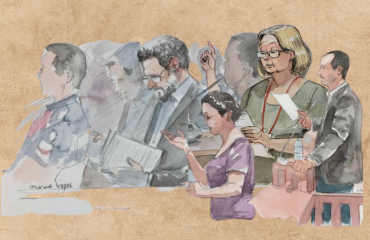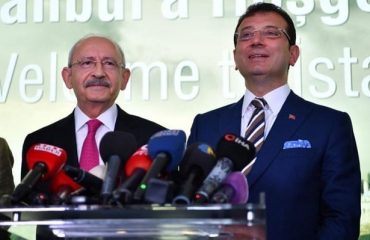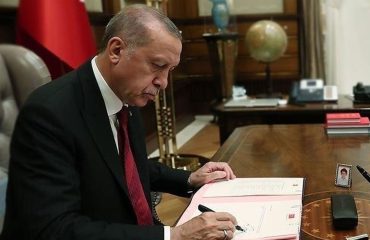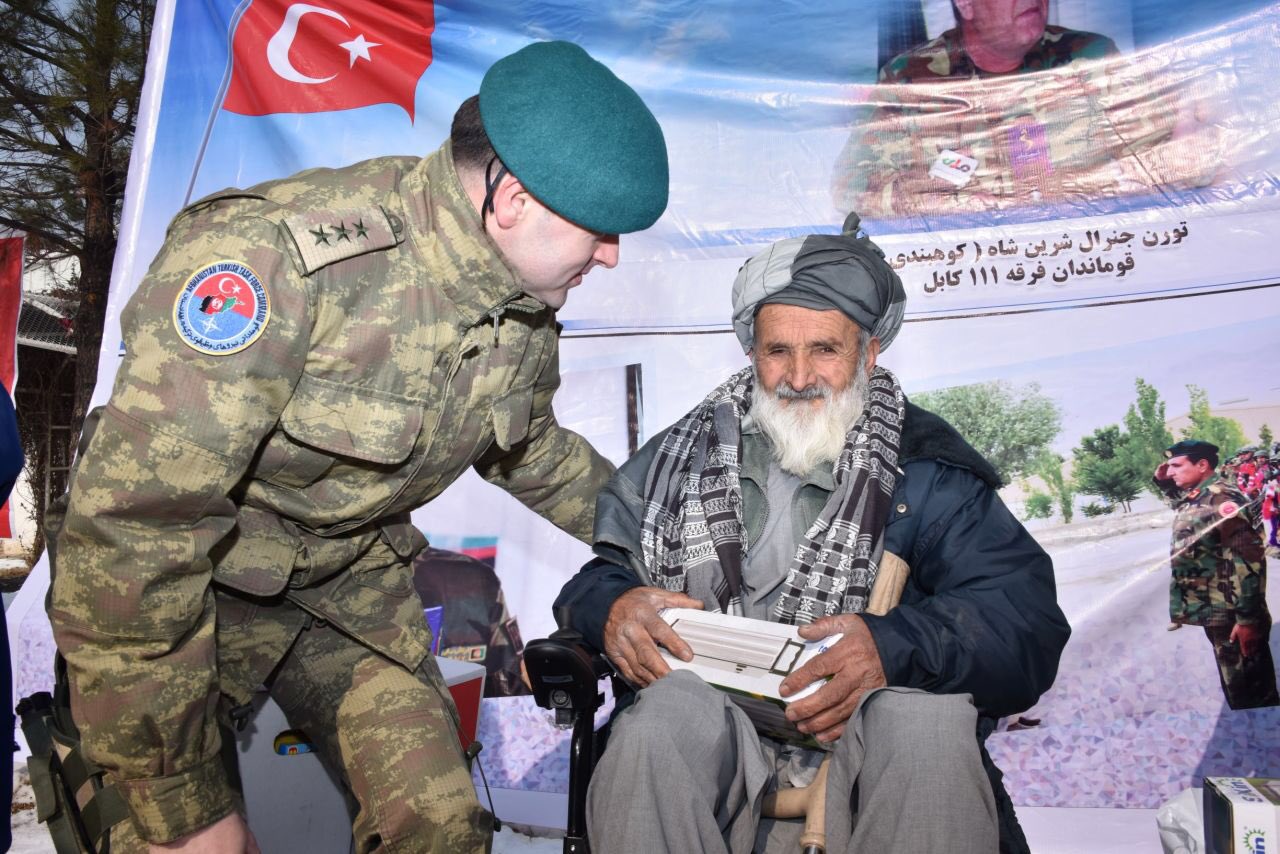
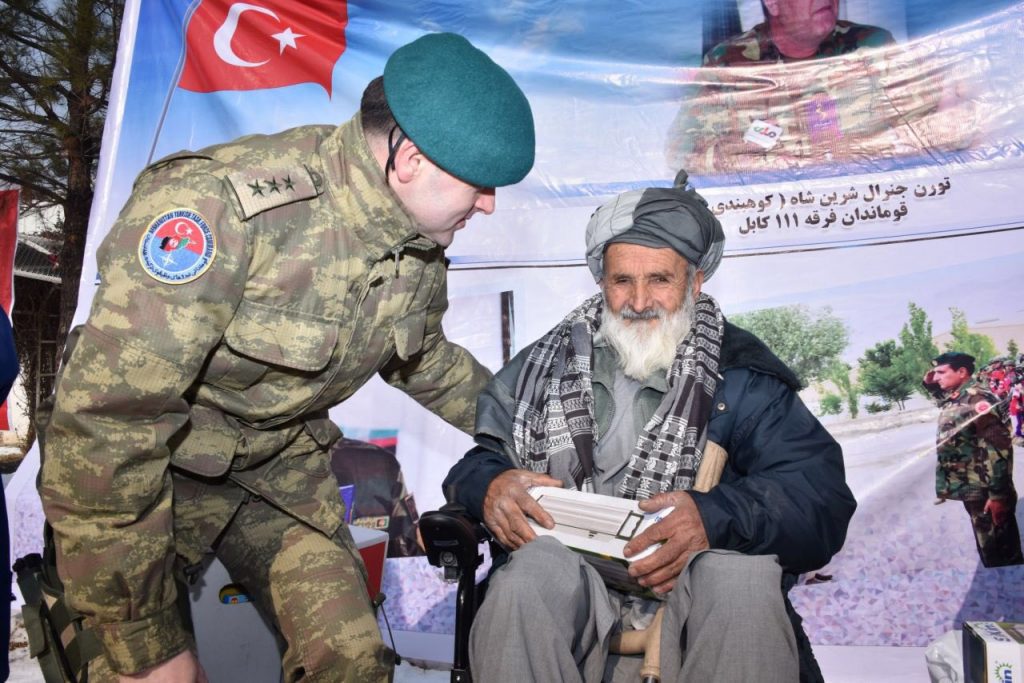
Will the responsibility of sending Turkish troops to Afghanistan to replace fleeing Western powers at the request of the United States, be on the shoulders of President Tayyip Erdoğan or the parliament?
There is no room for a rhetoric debate on the fact that there are already Turkish soldiers in the country that suffers from civil war, just because the parliament already extended the mission for another 18 months in December 2020. The mission needs a new decision even if only a single soldier would not be added to the existing force because the conditions have changed dramatically since then. Joe Biden, who took over the U.S. administration on Jan. 20, 2021, declared the decision to withdraw from Afghanistan, ending a bloody 20-year adventure. With the U.S? accepting its defeat, there remains no de facto NATO ground there, and the United Nations resolutions are subject to revision. Therefore, the basis of the current Turkish parliament mandate for the Afghanistan mission has become controversial.
Who will shoulder the historic responsibility for keeping up to 600 Turkish troops at the capital Kabul airport or sending new troops to Afghanistan? The president or the parliament that is already dominated by the alliance of Erdoğan’s ruling Justice and Development Party (AKP) and the Nationalist Movement Party (MHP)?
A new Afghanistan?
Taliban, a Frankenstein co-produced by the U.S., Saudi Arabia, Pakistan and China in the 1980s against the Russian invasion, is re-gaining the Afghan soil that it lost with the intervention led by the U.S. and contributed by allies including Turkey. Now, three of the five permanent members of the U.N. Security Council –the U.S., Russia and China–, have united in warning the Taliban, but the Taliban, which now claims to control three-quarters of the country’s territory, do not seem to care.
The US suggestion to Turkey to host “peace talks” between the Afghan government and the Taliban is a political maneuver rather than a move to achieve tangible results. It is Biden’s way of saying “Turkey is important to us in all respects,” as the U.S. leader wants to show he has distanced himself from President Erodğan but not Turkey.
As a matter of fact, the Taliban are poised to retake power in Afghanistan by force as soon as the U.S. withdraws completely, The remarks by Shahabuddin Delawar, the head of the four-men Taliban delegation conducting diplomatic talks with the United States in Qatar, indicates that. (He spoke in Tehran following talks with Moscow that Taliban defeated two decades ago.
Russia is now preparing to revive its Soviet-era military base in Tajikistan, on the border with Afghanistan, in contact with the Tajik government. There are concerns that the Taliban will provoke radical Islamist movements in the Turkic Republics and Russian Central Asia. China, which once supported movements like the Mujahideen and the Taliban just to oppose Moscow, shares similar concerns for its Xinjiang Uyghur region. After the visit by Turkish Defense Minister Hulusi Akar to Tajikistan last week, the U.S. Secretary of Defense Lloyd Austin also contacted Tajik authorities.
As you have noticed, diplomacy regarding Afghanistan is carried out by defense ministers rather than foreign affairs in pace with the spirit of the times.
The Taliban openly say that they do not want to see Turkish soldiers in the country, although they differentiate Turkey, which has not sent combat troops in Afghanistan until now, with the other NATO allies.
What’s at stake
Experienced diplomat Namık Tan, who had previously been in Moscow and served as the Turkish Ambassador to Tel Aviv and Washington, wrote on Yetkin Report yesterday on the U.S. efforts to direct Turkey to Afghanistan.
Turkey has historically been active in Afghanistan. During World War I, Germany wanted to enter Afghanistan with the support of Turkey; special operations officer Rauf (Orbay), whom we will see later in the Turkish War of Independence led by founding father Mustafa Kemal Atatürk, served as the head of that mission The Afghan Kingdom was the first country to recognize the Ankara Government even before the establishment of the modern Republic 1923. Uzbek Turk Rashid Dostum’s forces are particularly strong in the north of Afghanistan across the Uzbek border. He is close to Turkey and had a recent meeting with Erdoğan.
However… It is necessary to look at what has remained from the discourse of “rooted Turkey-Afghanistan relations.”
Therefore, the value of psychological preparations such as the “friendship mission to Afghanistan” in the government media these days is also questioned.
The consecutive Soviet and U.S. occupations have turned Afghanistan into a hell on earth. Many terrorist organizations, from al-Qaeda to ISIL, find their grassroots and sources in Afghanistan. Under strict Islamic Sharia, 90 percent of the world’s heroin consumption originates from Afghanistan. Women are forced into child marriage under the darkness of the Taliban and have been offered no role other than bearing children.
The administration can supply power to the capital for only two hours a day. Even the possibility of the Taliban coming back to power has started a new wave of immigration from Afghanistan.
It’s Erdoğan’s responsibility
There was yet another crucial comment in Namık Tan’s article’s Turkish edition. He recalled that in 2001, then Prime Minister Bülent Ecevit compared Turkey’s decision to send troops to Afghanistan against the Al Qaeda in the wake of the Sept. 11 attacks to Turkey’s sending troops to Korea in 1950. So did Devlet Bahçeli, the deputy Prime Minister of the time and the leader of Erdoğan’s election ally MHP today. History says that 721 Turkish soldiers sent to the Korean War to side the U.S. died as 175 others went missing as 234 were taken prisoners. As a result, Turkey entered in 1952 NATO, its most concrete tie with to the Western alliance. What will be the political interest of Turkey this time?
As a matter of fact, the weight of diplomacy is on Akar’s shoulders, even though the Foreign Ministry is also active. The defense minister, who spoke on the phone with his U.S. counterpart, Austin, on July 7 and 8, is expected to carry out further talks. However, the talks are on the “logistical and technical level,” as the authorities put it. The financial dimension of the matter is also included.
The main reason for Erdoğan to take the risk of sending troops to Afghanistan may include Erdoğan’s wish to continue a personal dialogue with U.S. President Biden, Tan said.
I would agree and we had reported on YetkinReport that Erdoğan makes a big diplomatic mistake in insisting on personal relations, not institutional.
In brief, this is a heavy responsibility. If Erdoğan is to take the decision alone, it will have consequences in terms of international law, but the vast responsibility will be his. If he takes the decision to parliament, then all eyes will be on whose hands will be raised.
The U.S. became the third world power that entered Afghanistan in arrogance and anger but faced a big defeat, following the British Empire at the start of the 20th century, and the Soviet Union at the start of the 21st century. It is not in vain that Afghanistan has been called the cemetery of giants since Alexander the Great, Emperor of Macedonia.
It is a safer and easier way to strengthen the pluralist democracy and rule of law in Turkey, to remove the obstacles in front of separation of powers, an independent judiciary, and free press, instead of trying a “cunning” shortcut to become a part of the Western World by sending troops to Afghanistan. That would also be good for the economy.
